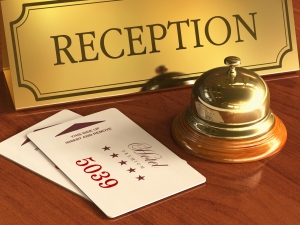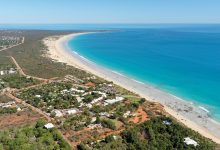
The ‘other’ baby boomer traveller
A host of recent surveys has been showing that people want to travel more.
A fifth of baby boomers said not travelling enough is one of their biggest regrets when thinking back over their life so far. Three out of five people plan to take at least one leisure trip in the next 12 months and 35 percent of those will be baby boomers, states Cheryl Schutz, vice president of Client Intelligence at travel data analyst D K Shifflet & Associates.
“Although millennials (30 percent) and genX (26 percent) will account for over half of this year’s travel, they are planning shorter trips than boomers, thus will likely spend less per trip,” Ms Schutz proffers.
While millennials are getting more and more attention in the media, and are no doubt the rising force in the travel industry, Brent Green, an expert on marketing to the baby boom generation and author of Generation Reinvention and Marketing to Leading Edge Baby Boomers, says that the baby boom generation will continue to be the main driving force in the travel industry for the next two decades.
Mr Green says that the 50-plus demographic is a $120 billion-a-year market. Not only are they reaching their heavy travel years, the generation also has a particularly pronounced propensity for travel. The generation is also a large demographic and is in control of a lot of wealth and discretionary income. In addition, that demographic has been a trend setter for its whole life. All of these factors converge to make the market a veritable gold mine for the travel industry.
The ‘ageing population’ is just one investment thematic that has become increasingly important over the last decade and for good reason.
[pro_ad_display_adzone id=”13762″ align=”left”]According to the Australian Bureau of Statistics, the proportion of Australia’s population aged over 65 years has grown from eight percent in the 1970s to more than 14 percent in 2014. This proportion is projected to increase to between 23 percent and 25 percent over the next 40 years and, at the same time, the proportion of people aged under 15 years is projected to decrease from 19 percent in 2007 to 15 percent in 2056.
Australians are living longer. In the 1960s, the average life expectancy was around 68 years, today it is 78 years and in 2042 it is expected to be around 83 years.
But this is not a phenomenon unique to Australia’s population. In fact, the global population is ageing at a similar rate.
The baby boomer travel market is bigger than ever and is growing in size and in dollar spend as the last of the baby boomers come to age. They have more disposable income than any previous generation, they are more adventurous and they are discerning travellers.
Moreover, they are in the “time affluent” stage of their lives: baby boomers (age 65+) on average have 7.5 leisure hours available each day compared with 5.5 at age 55-65; 4.8 at 45-54; and the most “time constrained” with 4.1 at 35-44.
Merril Lynch’s Leisure in Retirement: Beyond the Bucket List study, conducted in partnership with Age Wave, in January 2016 makes interesting analysis. Some 92 percent of retirees surveyed said that retirement provides greater freedom and flexibility to do what they want — regardless of how much money they have — and 95 percent say they would prefer to have more enjoyable experiences (like travel) than buy more things. After all, most already have acquired all of the assets they need and are, for the most part, debt-free.
Travel companies, especially the accommodation industry, are learning not to underestimate baby boomer demands, they are learning how to make their experiences more in line to what they want and expect.
Here are a few things accommodation providers need to know about baby boomer travellers:
- They believe travel is a necessity not a luxury.
- They don’t want to be confused with following the well-worn campervan furrows of fellow grey-nomads.
- They may travel with a budget in mind however they have considerable disposable resources to spend but they demand more bang for their bucks! They still want their comforts – they’re savvy bargain hunters with a penchant for quality and luxury.
- They are very independent and do not want to take a group tour to be herded around. They want cultural and social experiences that are unique. Most likely they have already done the touristy sites, they want something different. [“Leading edge baby boomers are looking for something outside of cookie-cutter travel experiences,” said marketing expert Mr Green. “They want immersive activities. They don’t want to just eat pasta; they want to make it. They don’t want to just make it; they want to see where the wheat is grown that makes the pasta. That’s immersive experience and creative experience. Travel companies that get it and are at the leading edge are doing it already.”]
- They are tech-savvy, their iPads and iPhones are their best friends. Free wifi is a must wherever they stay. They are travelling more and want to be in constant contact with their family and friends.
- They are willing to give anything a go – embarrassment does not exist in their language. Challenge them is their new motto.
- They are environmentally conscious. They are conscious of their carbon footprint and will look for genuine eco-friendly establishments but will not be fooled by “certified misinformation”. “Eco certification” doesn’t cut it if you have diesel resort transport where electric should be used, or no dual-flush toilets and leaky taps below signs that request you save water.
- They like to share their experiences with other travellers, younger or older.
- They are usually travelling as a couple, even solo baby boomers like to travel with a companion.
The Merrill Lynch study also identifies four distinct stages of retirement leisure, each characterised by a unique blend of experiences, priorities, and connections. The stages begin with pre-retirees winding down from work and looking toward retirement, continuing through early years of retirement and a period of liberation and embracing of greater freedoms, and ultimately finding contentment in later years.
What surveys may not reveal about baby boomers
Since I retired at Christmas, I have unleashed myself into the frenzied world of being a baby boomer on the loose in the fantastic holiday world of south east Queensland.
Baby boomer travellers have been pigeon-holed in marketing terms as: do nothings; grey nomads; budget travellers.
No question about the first two (I analysed #2 in Resort News, December 2015), but the third pigeon-hole I have much to say.
In the past few months I have stayed at accommodation as diverse as boutique hotels, high end resorts, city hotels, island resorts, motor inns and holiday parks. They included the magnificent boutique Abbey of the Roses and historic Vacy Hall to Spicers and Peppers through the Kingfisher Bay Resort and holiday parks that ranged from grim to great – Woodgate Beach, for example, is what a holiday park should be like.
I was surprised at the number of baby boomers that had taken over these resorts, outnumbering other age groups in most cases. In talking to them, one aspect comes to the fore: comfort. These travellers, mostly couples, want a bit of luxury above all else and are prepared to pay for it. These are the antithesis of the grey nomads; they are prepared to travel less and pay more to enjoy a touch of indulgence in their rooms, their dining and their experiences.
They want to experience new adventures. Many are returning to resorts they have already visited and are a bit disappointed to discover the “same old” tours and facilities are there – nothing new.
At Kingfisher Bay Resort, for example, many couples had been to Fraser Island at least once and already done all of the island tours and had no desire to redo the bone-jarring 4WD experiences again, however fascinating they might be. The other choices were canoe/kayak trips or try a segway (and many did). Being winter, water sports were a bit out of the question. Spas and massages were well patronised but there could have been night time entertainment of some sort as, with dinner over and the conversation was exhausted, it was a case of early to bed! And we are talking of 20+ couples here.
Food is one area that is vitally important. These travellers love to eat and eat well and appreciate a variety of interesting menu items but not necessarily MKR-style faux cuisine. And they are happy to pay for it, within reason – but they respect value for money.
As a rule, they are easily pleased but resorts wanting to attract this type of clientele need to provide for their peculiarities. Having worked for 40-50 years of their lives, they may not have the vitality and energy of life they once enjoyed. They appreciate not having to drag their luggage around or having to get maintenance done on their rooms before moving in. They just want to arrive – problem free* (see below) – and immerse themselves in the experience.
Above all, they want their friends and families to share the experiences and will constantly send selfies back to the kids to show that they can indeed master a segway. Free wifi is a highly appreciated necessity but it also needs to be easily accessible and obtainable.
Another aspect that accommodation providers need to be cognascent of is that some baby boomers are ‘differently abled’. They may not be ‘disabled’ but may have limits to mobility, vision and hearing and special health needs. It is worth considering improving access to showers, overcoming stairs without handrails and transport to far flung rooms, at least for luggage.

AccomNews is not affiliated with any government agency, body or political party. We are an independently owned, family-operated magazine.






